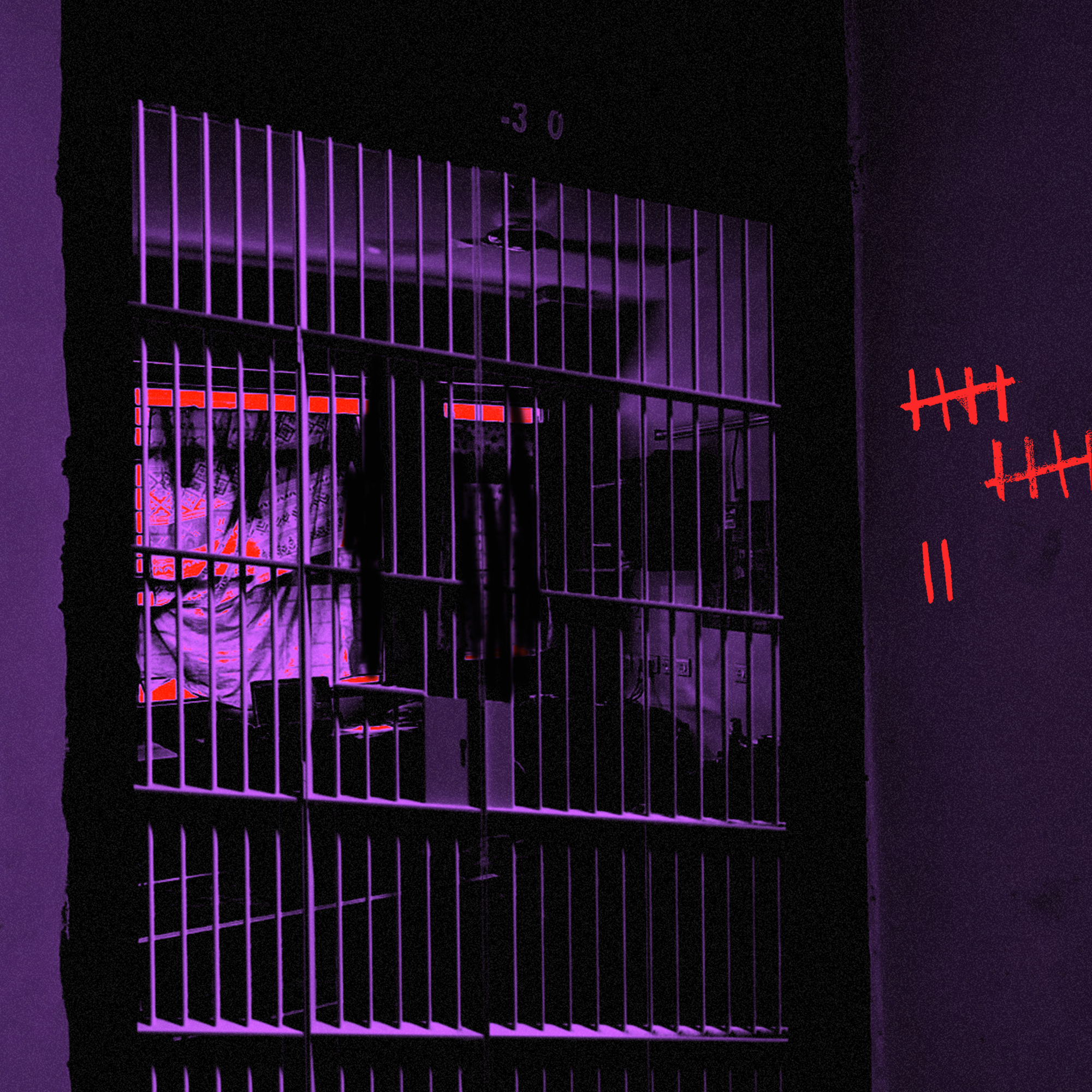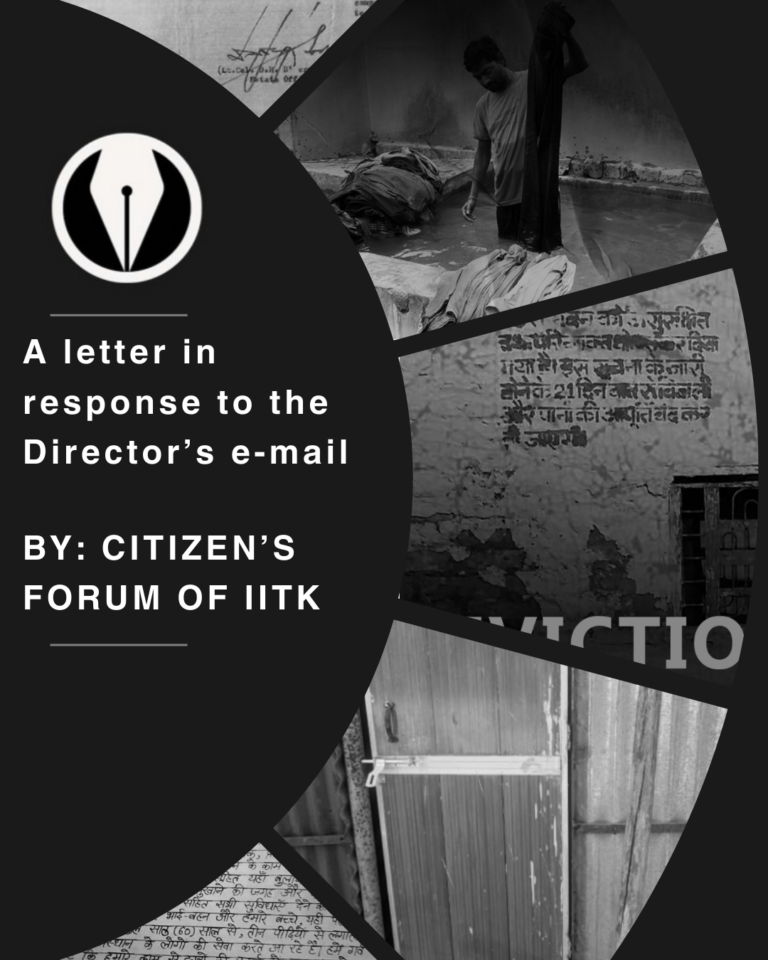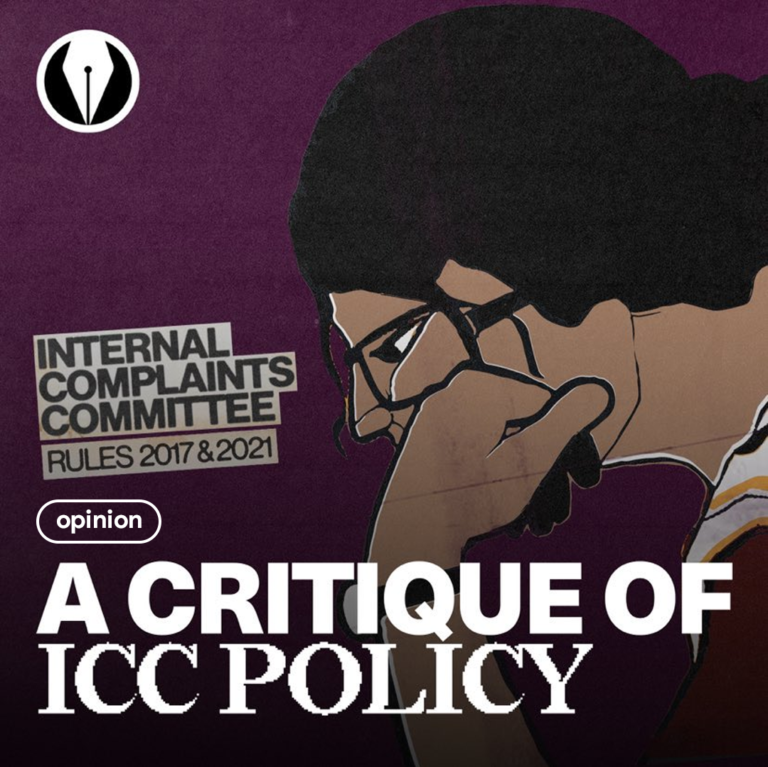Disclaimer: The opinions expressed below are the opinions of the writers and theirs alone.
Almost two weeks after first being allowed back on campus, Y21s continue to be subjected to stringent, unprecedented, and unreasonable restrictions even though their first year is nearing completion. Y21 students have been instructed not to leave their Halls between 8 pm and 8 am. This effectively means missing out on almost all major campus events, including SnT Code, Musical Extravaganza, and Dance Extravaganza, which run beyond 8 pm.
Unlike earlier years when such guidelines for incoming students would often be less strict and following them would be left as an individual decision, this year, ID cards are being checked during entry into and exit from Hall 13. During Antaragni, Y21s leaving Hall 13 for Pronites were asked to make entries in a register kept with the security guards. While this measure was abandoned due to massive overcrowding, it does not change the fact that the administration found it ethical to use the security section to enforce surveillance on adult members of the student community, whatever their year of study may be.
They were prevented from attending any Udghosh events and were only “allowed” to attend two out of the three Antaragni Pronites, with SGs ensuring that they return after it. Off the record, CTMs instructed SGs to ask Y21s to avoid leaving their Halls unless strictly necessary. Y21s are not allowed to enter any other Halls, even if of their own volition. This also means that Hall 13 – Hall 6 inter movement is prohibited.
Y21s have been warned of “severe repercussions.” In an incident representative of the environment where the batch finds itself, a CS Core team member, on spotting a Y21 outside the Hall premises after 8 pm, threatened to report him to SSAC.
These restrictions deprive first-years of fun and enriching college experiences– like participating in club activities and fests– and infringe on fundamental rights they have, as adults and as full members of the campus community. There have been incidents when Y21 students who want to work in the library after 8 pm or go out for a morning walk before 8 am have been prevented from doing so. Regrettably, this unnecessary management of their lives has not always stemmed from external administrative measures: as a result of directives from their own seniors. Y21s in Hall 6 have been stopped from visiting the canteen after midnight and have been prohibited from accessing floors below the fourth after 10:45 pm since those are the Y20 floors. In Hall 6, few students have been reprimanded for things as trivial as being loud in their own wings or visiting the basketball courts or GH canteen at night.
If one goes by the nature of emails sent out to the larger student community, the implicit rationale behind such stringent restrictions seems to be that it will prevent incidents of ragging. However, the randomness of such restrictions is easy to observe. Nothing changes in the 8 pm to 8 am time interval. Unlike what the administration might want to believe about ragging, darkness has very little to do with it. A senior is as likely to misbehave at 6 pm as they are at 10 pm. The possibility of ragging exists at any time of the year and does not cease instantly on the date that restrictions are to be lifted. Clearly, then, the arbitrary timing restrictions are futile and are set according to the beliefs of a limited number of individuals who take the liberty of deciding what times of the day a Y21 might “need” to venture out of their residences. Prohibiting entry to one Antaragni Pronite, even for those Y21s who already had ID cards, is yet another random strike at the liberties of an individual. Similarly, movement restrictions between Hall 13 and Hall 6 for Y21s are another attempt at policing students: one cannot think of any incidents in recent memory that indicate that such movement exacerbates ragging.
Furthermore, these restrictions give a false impression that Y21s must be careful lest they “get ragged.” That, if they step into unapproved spaces at certain times of the day, they potentiate “ragging” on themselves. In our experience, there are exactly two parties to blame for any incident of ragging: first, the senior students who inflict the torment, and second, the people in positions of power– other senior students and faculty members– who let ragging go unpunished year after year. Instead of holding individuals in positions of responsibility accountable, the current policies tend to exclusively police first-years.
When we asked two Counselling Service (CS) coordinators for the rationale behind the restrictions, they replied that Y21s should not be “exposed to something they would not be happy about” and that such unpleasant incidents tend to be more frequent during fests, especially after pronites. A (CS) Core Team Member confirmed that they are enforcing the measures strictly, because they fear taking responsibility if any untoward incident happens. The CS coordinators we talked to agreed that the restrictions are indeed strict or “dystopic”– some members were opposed to them from the very beginning– but the faculty representatives remained unswayed. The CS currently wants to relax the curfew to 12 am- 6 am: while the DoSA does not oppose this relaxation, a decision cannot be made until the anti-ragging committee reconvenes and approves it. Restrictions are slated to continue until at least the 23rd of April (3 weeks from when the Y21s arrived), in keeping with the tradition of earlier years when restrictions– much milder and relatively unenforced, in comparison– used to be imposed until freshers’ night.
We believe the current restriction-oriented policies are an easy way to bypass the root causes and associated nuances of a problem as deeply embedded in psychosocial factors as ragging. It is indeed simpler to confine students to their Halls than to drive institutional changes and policies that empower them to be equal and free citizens of the community. Such policies directly affect how Y21s conceptualize their membership in this place. They begin seeing this space not as their own home but as a foreign environment where they are subject to arbitrary rules, often enforced without written communication and never with any justifications. Seniors are thus constructed as threatening entities to be afraid of, and the best interaction with them is one that is avoided.
It is not far-fetched to say that the restrictions imposed on Y21s strike at the core of what we envision a full, free life at IITK to be and, thus, must be lifted with immediate effect.
Authors: Abhimanyu, Ayush, Bashirul, Vijay, Ankur, Aditya





![[EDITORIAL] Is the institution failing somewhere?](https://voxiitk.com/wp-content/uploads/2026/01/1-2-768x960.png)






